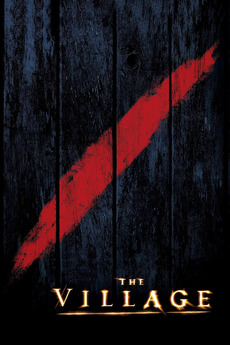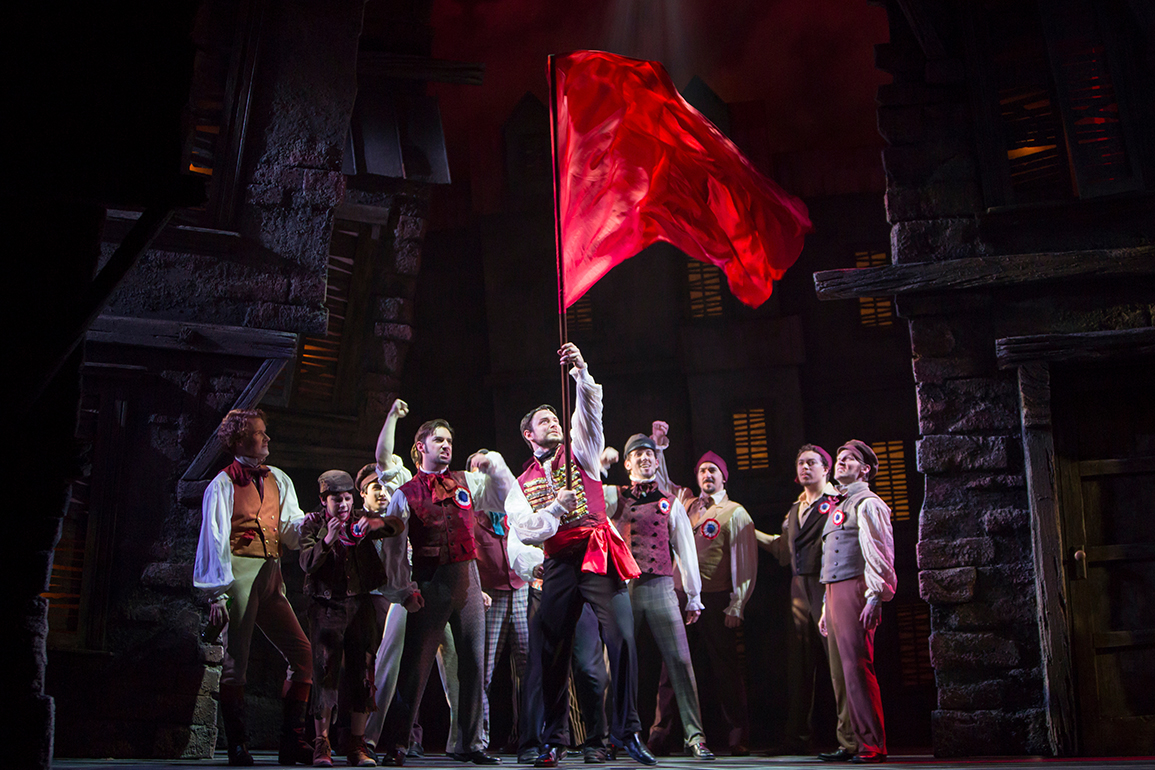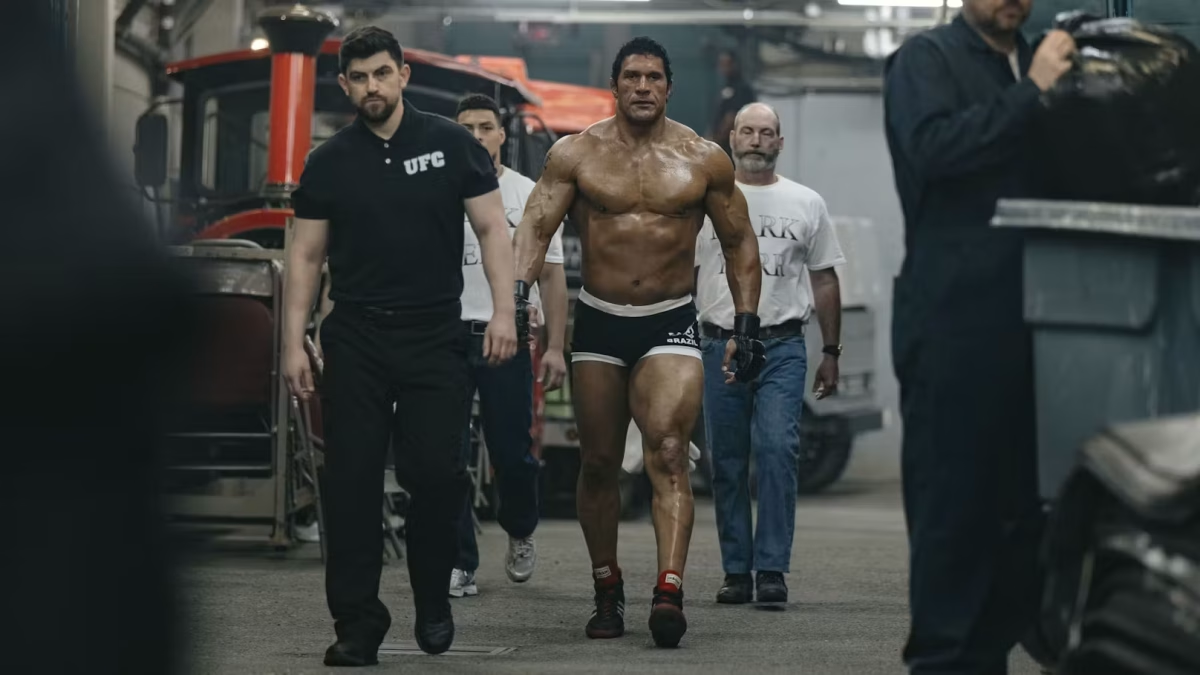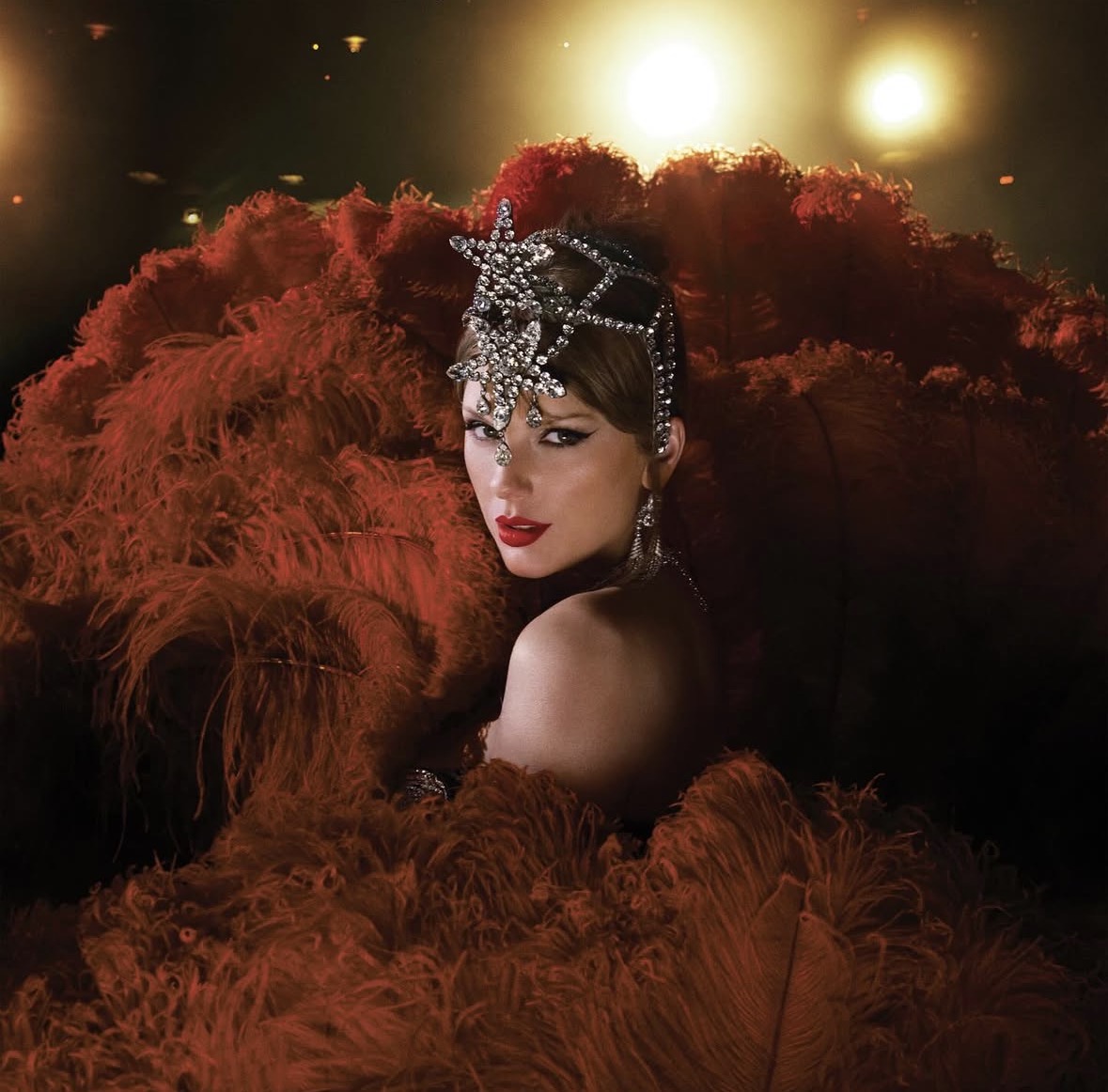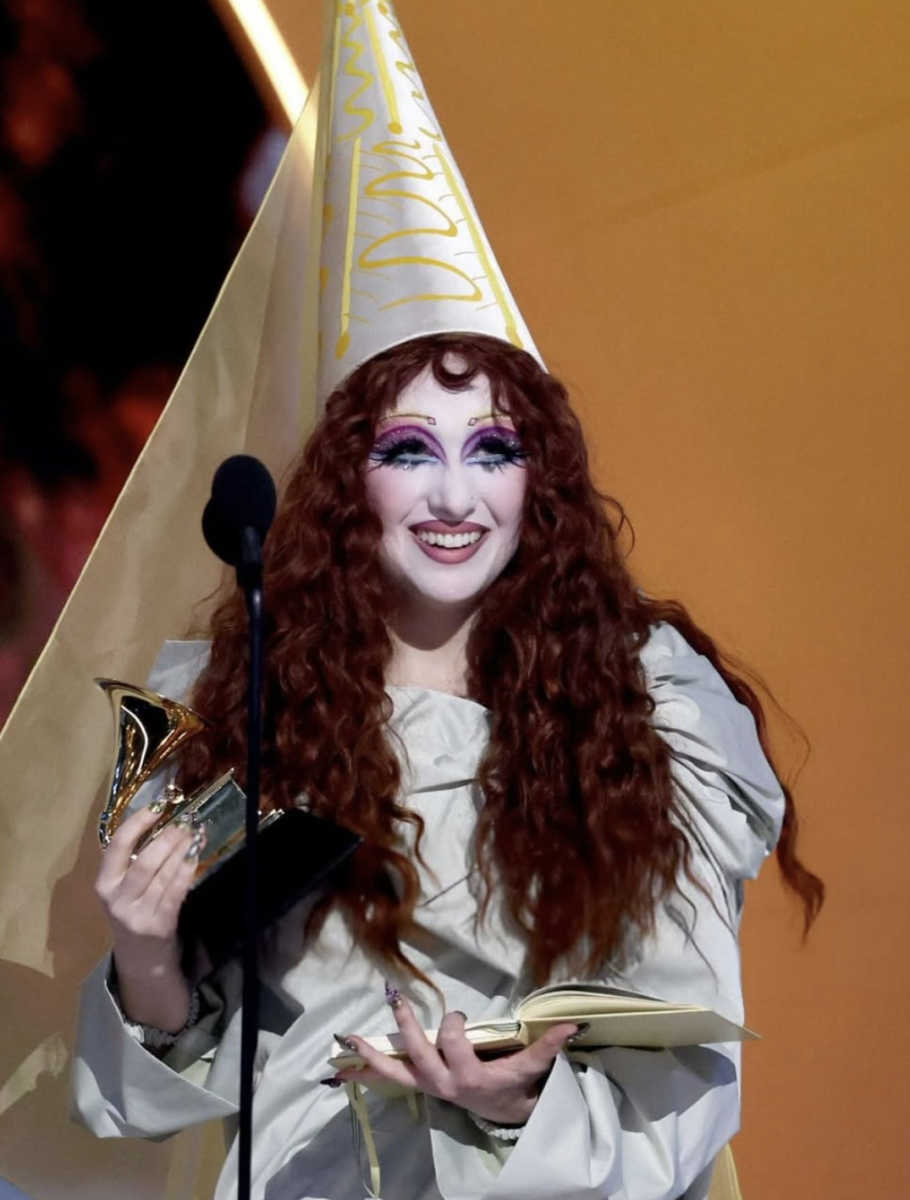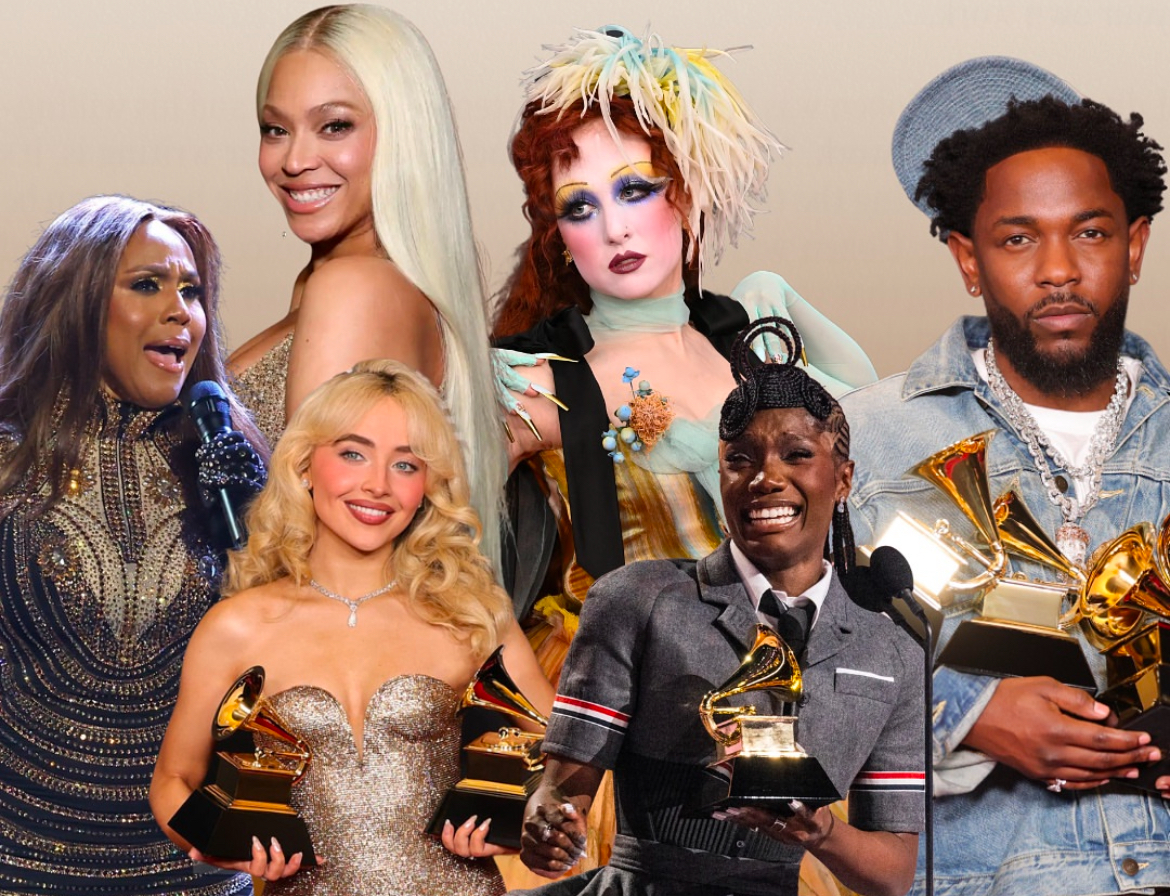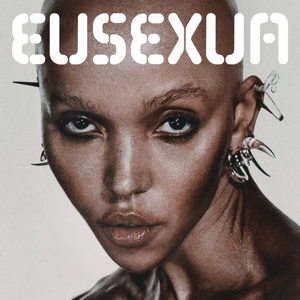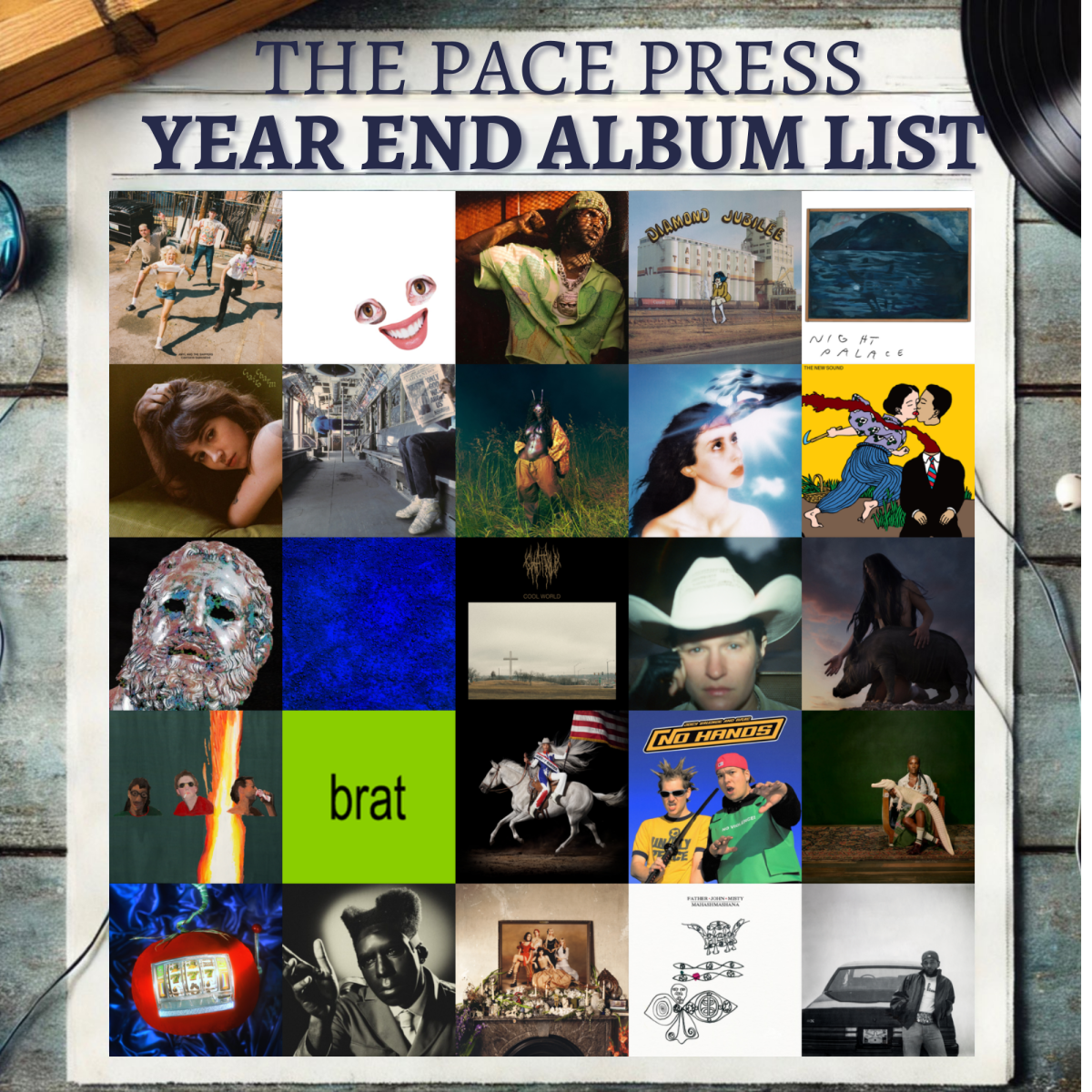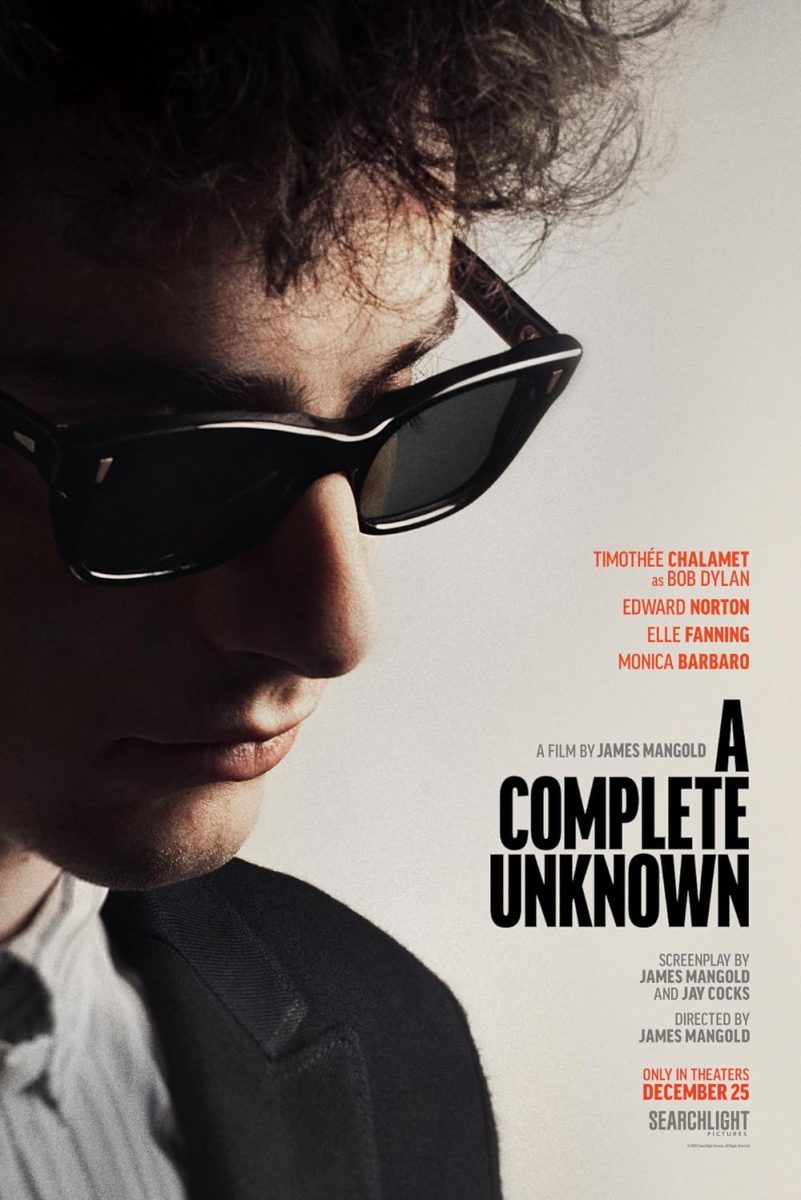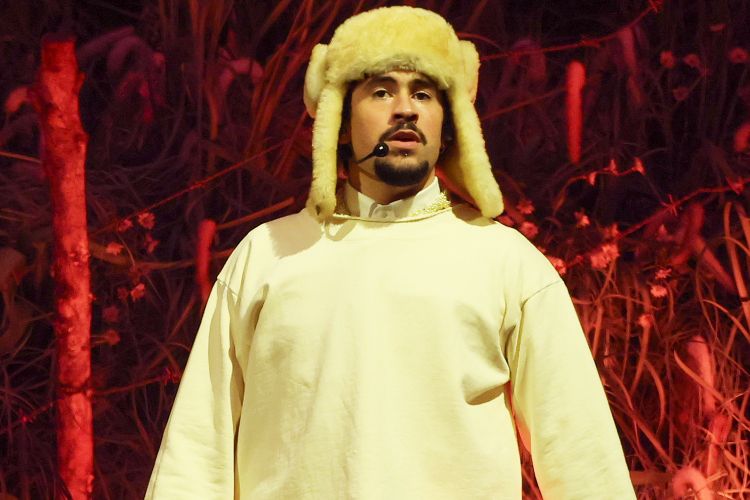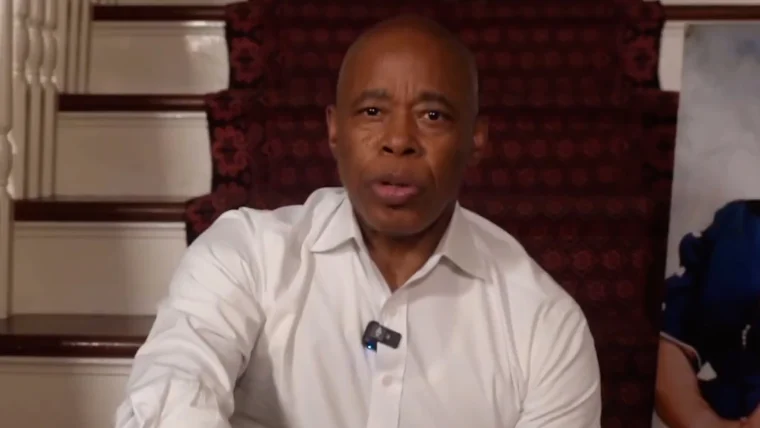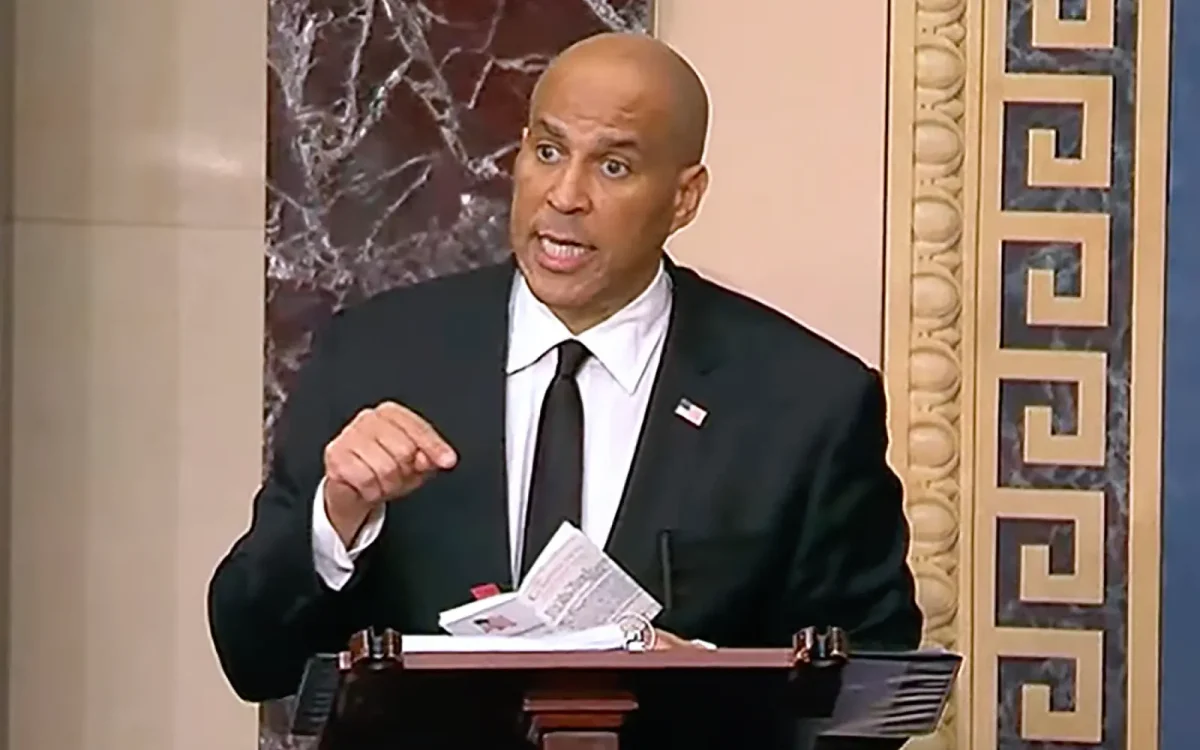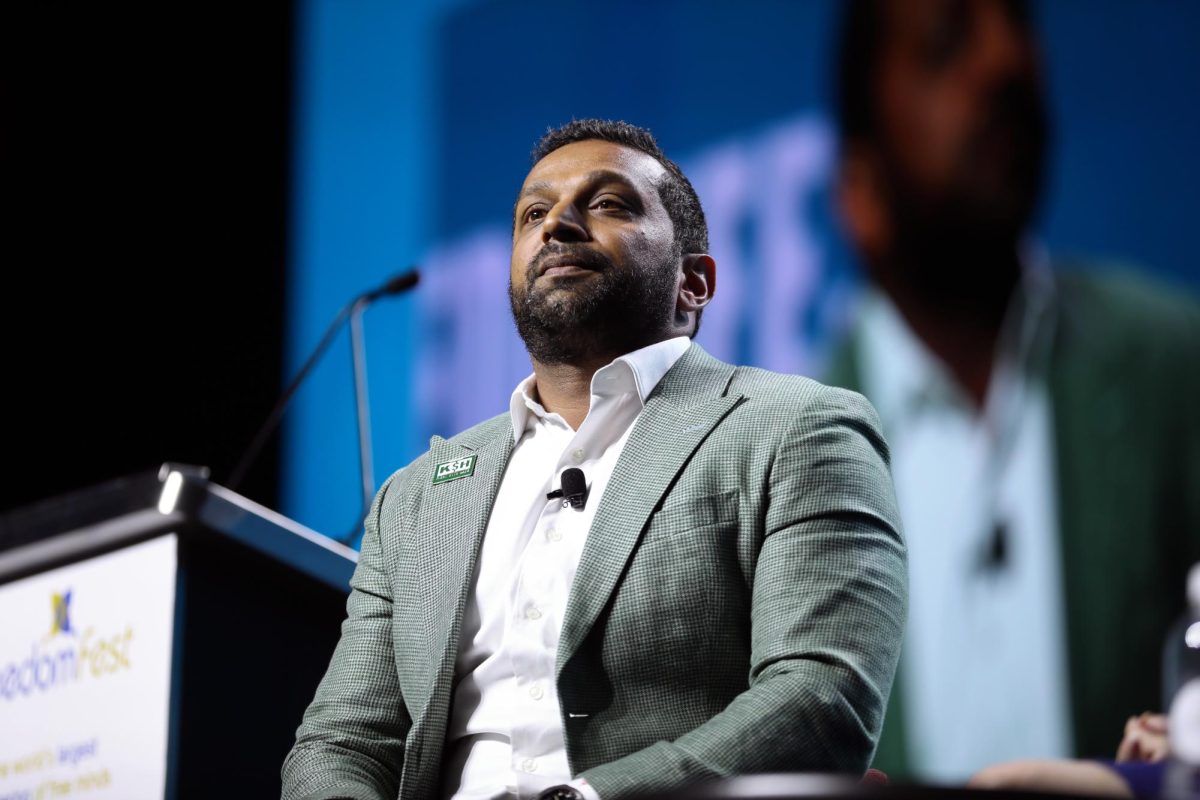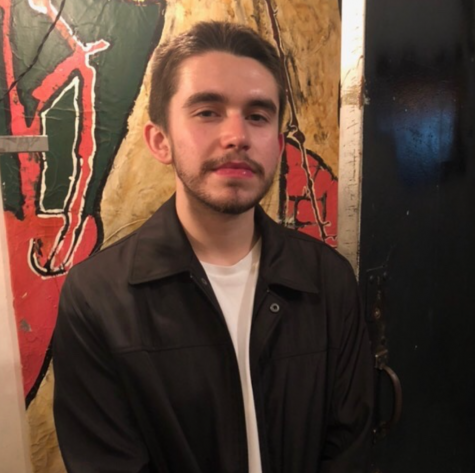It feels like it hasn’t been that long since legendary rapper and producer Kanye West repeatedly referred to himself as a “God” on his aptly titled track, “I Am a God.” His sixth full-length release “Yeezus” was full of moments like these, both on the record and off, as he reiterated his “God status” multiple times in an iconic 2013 interview with radio DJ Zane Lowe. “I just told you who I was,” West shouted at any naysayers, “A God! I just told you!”
Compare this eccentric yet electric scene with where he is now: hosting weekly gospel choir concerts titled “Sunday Service” across America and producing songs in which he tells listeners “Follow God, listen and obey.”
West has worn a lot of hats over the course of his career. Every album he releases comes with a new theme or era in his life. This new era, complementary to his Oct. 25 gospel album “Jesus Is King,” feels different. This new vehemently religious West has numerous patrons feeling alienated due to the fact that they weren’t religious themselves and couldn’t manage to get behind the message. Many others were also anxious to see where West’s career would go next after he promised that he would strictly be releasing gospel music from this point forward.
Fans and critics alike can’t help but wonder: how did we get here? It’s very common for the rapper/singer to put himself in the spotlight with either admirable or harshly criticized antics, but this is a different headspace for him. Surely, West has always been an unapologetic free-thinker, never hesitant to speak his mind using the media (see: his Twitter feed). But how did the same artist who proudly and blatantly announced “George Bush doesn’t care about black people” on live TV come to support Trump, somebody consistently endorsing everything that West doesn’t stand for? The question forms a long and complicated timeline.
Let’s take it back to November 2016. West is touring the states on his celebrated Saint Pablo tour, where he performed on a “floating stage” of sorts: a large, rectangular, mobile platform hovering by ropes above a pit of moshing and chanting fans, with others lining the stadium seats to watch the spectacle from a just-as-incredible distance.

It seems that wherever West goes, controversy and conflict follow—while on this tour, he entered a nasty feud with long-time companion Kid Cudi. When performing at The Meadows Music and Arts Festival in Queens, he abruptly ended his set because his wife Kim Kardashian had been robbed at gunpoint in Paris. Following these events, West began interluding songs on the setlist with drawn-out speeches sending resentful tones towards long-time friends such as Drake and Jay-Z. While one might justify this change in mentality with night-after-night shows and family conflict, nobody saw what came next.
On Nov. 18, 2016, West announced to a crowd in San Jose, California that he did not participate in the 2016 election, but if he had, he would have voted for Trump. “That don’t mean that I don’t think that black lives matter, that don’t mean that I don’t believe in women’s rights, that don’t mean that I don’t believe in gay marriage,” the performer continued as most of the crowd booed. As West stood on the edge of the stage, tilted downwards towards the once energetic audience, spectators both at the scene and online knew that this was bound to be another infamous career moment. The tour would end a week later on Nov. 21 when West was hastily admitted to a hospital due to signs of mental instability and physical deterioration on account of the tour. But this did not mark the end of his bizarre attitude.
This series of events led to the first (of many) meetings between West and Trump. On Dec. 13, 2016, reporters gathered in the lobby of Trump Tower to capture Trump and a blonde-haired West walking out of the tower’s elevators, greeting press with a smile. Cue a very awkward and disorientating impromptu press conference. When asked what it was the two had discussed, Trump proudly responded with “Life. We discussed life.” West stood next to him uncomfortably (granted, West is oftentimes uncomfortable around cameras) making it clear to reporters that he “just wants to take a picture right now.”
One of my favorite of many things about what the Trump hat represents to me is that people can’t tell me what to do because I’m black
— ye (@kanyewest) January 1, 2019
After they went their separate ways, West took to Twitter, explaining, “I wanted to meet with Trump to discuss multicultural issues.” He later hinted at running for president in the future with the very vague and simple Tweet, “#2024.” This meeting spurred controversy between both West’s fans and his adversaries, but just when it seemed like he was in quite possibly the most controversial moment of his career, he vanished. Radio silence. Other than some vocal features and production credits on other artists’ tracks, a few paparazzi photos here and there, and his usual clothing line releases, gossip about West in the media almost completely halted. Even his own Twitter and Instagram accounts were deactivated. While many music release rumors were circulated during this time, like collaboration projects with Chance the Rapper and Jay-Z, West remained almost completely uncommunicative for over a year. Then, on April 13, 2018, the silence was broken via Twitter.
reading from the book of Daniel pic.twitter.com/GHmLTWa7iS
— ye (@kanyewest) November 25, 2019
Initially, West’s Twitter rants were in an effort to defend his clothing company from Nike, as he had believed that they had intentionally copied the design on his well-known Adidas collaboration, the “Yeezys.” It seemed like normal social media presence for the rapper, and many had wondered if West had returned to his former, outspoken-yet-aggressively-progressive self.
Then, things took a weird turn once again—he reiterated his support for Trump in several tweets. In one post, he even endorsed conservative and controversial YouTuber Candace Owens, stating, “I love the way Candace Owens thinks.” Not every new tweet was written in West’s new and right-wing voice, however, as he did cite Parkland shooting survivor Emma Gonzalez as his “hero” in one tweet, sparking more controversy on both sides.
Regardless, the rapper was determined to continue portraying himself as this Trump-supportive figure. A few days after his return to social media, he debuted his now frequently-cited “Make America Great Again” hat, a loud, red piece of official Trump merchandise sported by his supporters nationwide. West bore this same hat at his next and more detailed meeting with Trump when the two had lunch in the Oval Office. The meeting was described as two powerful people discussing topics such as prison reform and gang violence, but quickly devolved into an absurd back-and-forth of compliments and far-fetched ideas like an Apple-designed “iPlane 1,” courtesy of West. It’s also in this scene where the rapper expressed to Trump how much his infamous MAGA hat meant to him, saying, “There was something about when I put this hat on it made me feel like Superman,” BBC reported. Naturally, Trump returned the compliment, claiming that West could “very well be” a future presidential candidate. This had been the last major meeting between the two to receive mass media coverage, stirring an immense amount of controversy, but West’s interference in politics did not end there.
A plethora of controversies spawned over the next year, from a repeatedly-unfulfilled promise of an album titled “Yandhi,” to multiple generous donations from West to causes such as police brutality awareness, California fire relief, and prison reform. Then, finally, to the fans’ relief, West dropped “Jesus Is King”: a 30-minute confessional and preachy gospel record centralized around Christianity and finding saving grace in religion.
With a lot of hype to live up to, fans were anxious to first press play on “Jesus Is King.” The reactions have been a very mixed bag. Many Christian listeners loved the album both sonically and lyrically, while non-Christian listeners had trouble resonating with the sentiment of the lyrics. Some non-Christian listeners were able to see past the lyrics they might not have agreed with entirely and just enjoyed West’s keen ear for production and his sometimes quirky bars, “Closed on Sunday, you’re my Chick-Fil-A” being an outstanding one.
However, the question on hand remains: how does this release fall into West’s recent political involvement? It is important to consider West’s constant mention of his Christian faith throughout his entire career. His 2016 release “The Life of Pablo” had many gospel-esque cuts, and one of his biggest classic hits “Jesus Walks” truly speaks for itself. It’s not to say that West’s recent endorsement and promotion of Christianity appeared disingenuous as a result of his turbulent career, but rather that his claims and political stances do. It seemed as if West was too reluctant to admit that he completely immersed himself into the world of politics rather than just testing the waters first, and ended up in a series of contradictions that made him seem less concerned than he really is. For example, in his most recent interview with Zane Lowe on Oct. 25, he describes his MAGA hat era as “God’s practical joke on liberals,” essentially writing off the attire as a joke. However, on Oct. 5 at a Sunday Service in Salt Lake City, West reiterated that it was the Republican party that freed the slaves, offering a sort of empathy towards the Republican party who have faced scrutiny as a result of West’s antics.
It’s inconsistent moments like these that make many of West’s claims and stances seem like backpedals or impulsive denouncements and make it hard to endorse him in the field of any political discussion. Moments like these also take away from the sentimental value of messages delivered on “Jesus Is King,” such as when West confesses on the song “God Is,” “Listen to the words I’m sayin’ / Jesus saved me / Now I’m sane.”
Is anybody disputing or doubting the fact West has found an abundance of overdue contentment in the name of his God? Absolutely not. But there are many instances on the album that seem more excusatory than confessional when it comes to his recent controversy. Sonically, the album is tremendous. The Sunday Service choir show all the way up on the very first song of the album with a resounding and powerful chant of “Hallelujah, Hallelujah, Hallelujah,” with West showcases a variety of rapping styles from his newly-adopted frantic spitting style on “Follow God” to melodiously sing-rapping on “Closed on Sunday.” Lyrically, it’s understandable why many listeners are not convinced, whether they be religious or not. There is so much more that West has to address and unwrap in his upcoming releases, and this may be difficult if he chooses to stick to his promise of producing only gospel albums from this point in his career onward. However, after living through many of West’s trademark cancellations and delays, fans are hesitant to believe that claim entirely.

